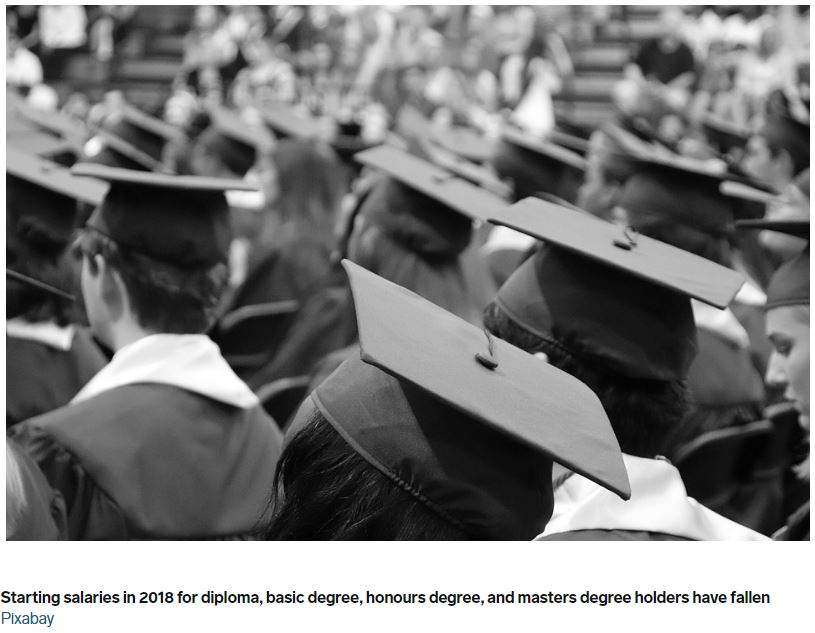Starting salaries for higher-educated graduates in Malaysia are falling – here’s why that’s worrying
Things aren’t looking so great for Malaysian employees.
According to Bank Negara’s annual report for 2018, starting salaries for fresh graduates and graduates seem to be shrinking together with the demand for high-skilled jobs.
Released on Wednesday (March 27), the report said that starting salaries in 2018 for diploma, basic degree, honours degree, and masters degree holders have fallen from 2010 levels.
Shrinking starting salaries
Despite the proportion of graduates in the labour force increasing from 23.5 per cent in 2010 to 28.3 per cent in 2017, starting salaries for graduates are falling, Bank Negara said
Citing a Malaysian Employers Federation study, the central bank said that a Masters degree holder would earn a salary of RM2,707 in 2018, a significant decline from RM2,923 in 2010.

With the ample supply and limited demand for graduates, many have had to settle for a job that they are overqualified for, and starting salaries have faced downward pressures as a result, the report said.

However, starting salaries of Penilaian Menengah Rendah (PMR) and Sijil Pelajaran Malaysia (SPM) graduates have risen by 4.6 per cent and 2.3 per cent respectively from 2010 to 2018.
According to the authority, this brings forth concerns that the income premium for education has narrowed in Malaysia.
If this problem goes unaddressed, it could lead to a lack of willingness from the future generation of Malaysians to pursue a higher level of education, Bank Negara said.
Less pay, equal work
The report also said that Malaysians are earning less than other workers in benchmark economies like Singapore, UK, US and Australia – even with productivity controls taken into consideration.
For example, Malaysian workers are paid US$340 (RM1,387) to produce an output of US$1,000. While in other benchmark economies, workers would be paid US$510 for producing the same output.

In particular, the Malaysian wholesale and retail trade, food and beverage and accommodation industry has a 0.32 ratio of wages to productivity, lower than the 0.64 in benchmark economies. Such industries are generally more labour-intensive, and dependent on low-skilled workers, the report said.

This could be due to the lack of bargaining power these industries have, due to the large number of low-skilled workers, the report said.
High-skilled workers, such as in the information and communication industry, have a specialised skill set and experience – allowing them to command a wage premium.
Such industries earned an average wage of RM3,556 in 2016, more than 40 per cent higher than the national average, the report added. The ratio of wages to productivity here was 0.17, compared to 0.29 in benchmark economies.
Source: https://www.businessinsider.sg/starting-salaries-for-higher-educated-graduates-in-malaysia-are-falling-heres-why-thats-worrying/


 English
English




